(photo by NSW National Parks)
I've spoken before about how photostreams like Flickr are intriguing portals that connect scientists and the public with high quality images of animals from "the field."
Another example of a starfish species that falls under the category "about which, little is known..." but thanks to photographers from Australia and New Zealand we can now see some stunning images of not just its appearance but some biology as well!
The subject? A starfish called Asterodiscides truncatus (described in 1911) called "the fire brick starfish" because of the very fiery colored, brick-like tubercles that cover the surface of this species.
Photo above by Simon Franicevic
Photo by kbean45
Also.. note the large swollen tubercles at each arm tip which kind of resemble buttocks?? or a pair of toenails? These features are present in all 18 species of Asterodiscides, which are found throughout the Indo-Pacific from Madagascar to Hawaii/Japan and to the South Pacific.
Photo by quikflik
They tend to occur in deeper water and so there isn't that much known about them.
They get quite big.. (photo by newtestleopard)
Some biology from Flickr!
For example, this image by Richard Ling looks to show A. truncatus in feeding position on some bryozoans.
Asterodiscides is shown here in "tippy toe" formation producing gametes! I wrote about this awhile back. The significance isn't well understood-and this is probably the FIRST time this behavior has been documented in this species.
Photo above by cameronandali@yahoo.com.au
These images show various crustacean commensals with A. truncatus. A shrimp (photo by Rowland Cain)
and an amphipod (also by Rowland Cain)
Some great close up shots of the beautifully colored tubercles on the animal's surface
from Richard Ling
from Billunder
from lndr
from tarasutherland
from kbean45
And here's some video so you can see what they look like alive! Something most scientists have probably not experienced. (I know that I have never seen one of these alive).
My gratitude to all of the photographers who took the time to take such incredible shots and make them available for all. Not only have you made an aesthetic contribution-but perhaps these will inspire a scientific endeavor as well!
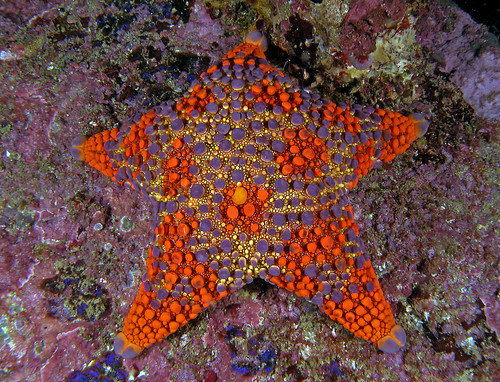
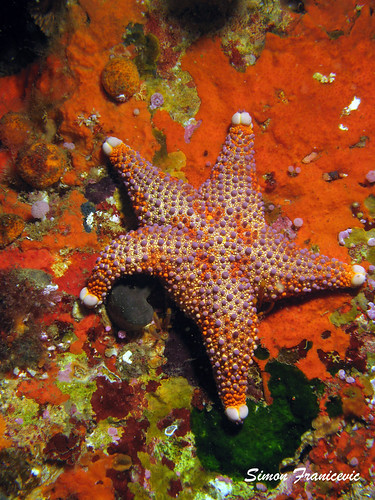
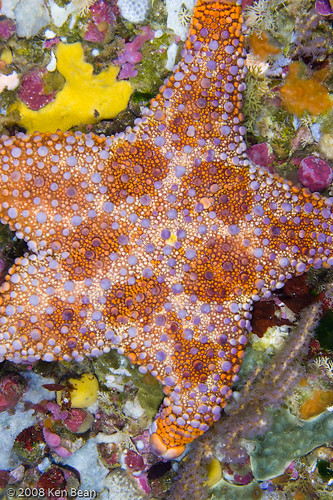
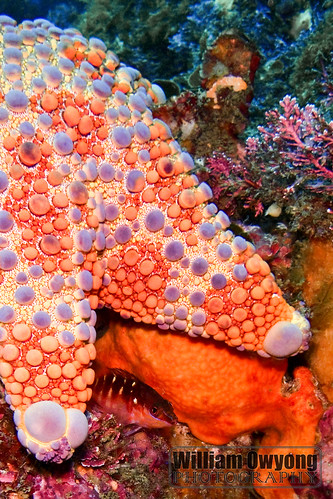

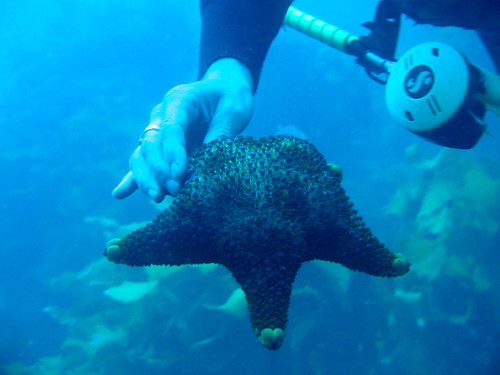

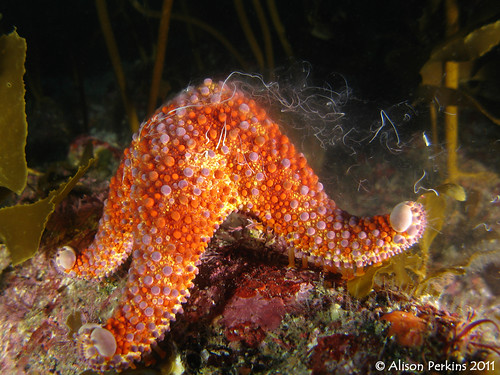


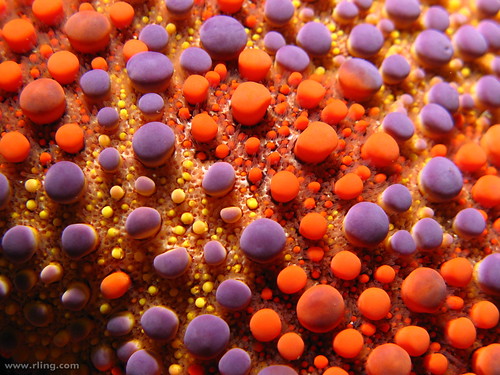
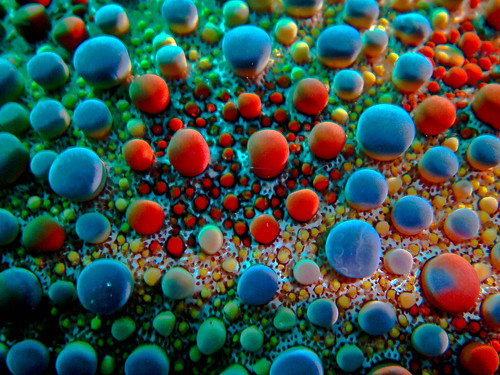

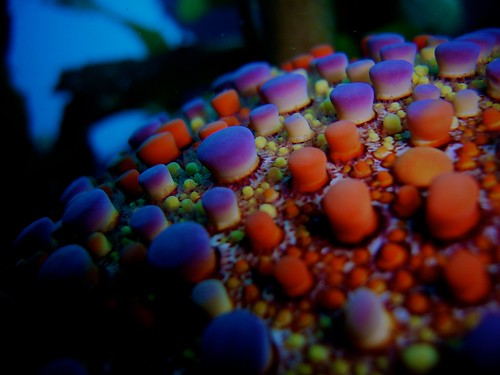
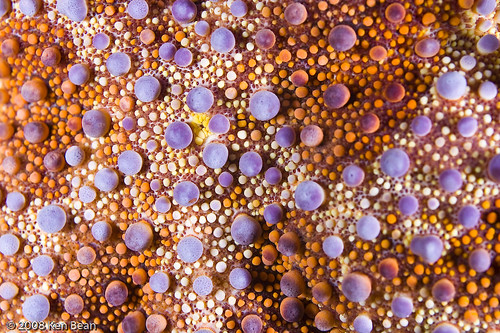
Incredible colors. But what kind of function do they have on such depth?
ReplyDeleteunknown.. That one picture of it spawning is probably the most we know about its actual biology..
ReplyDelete